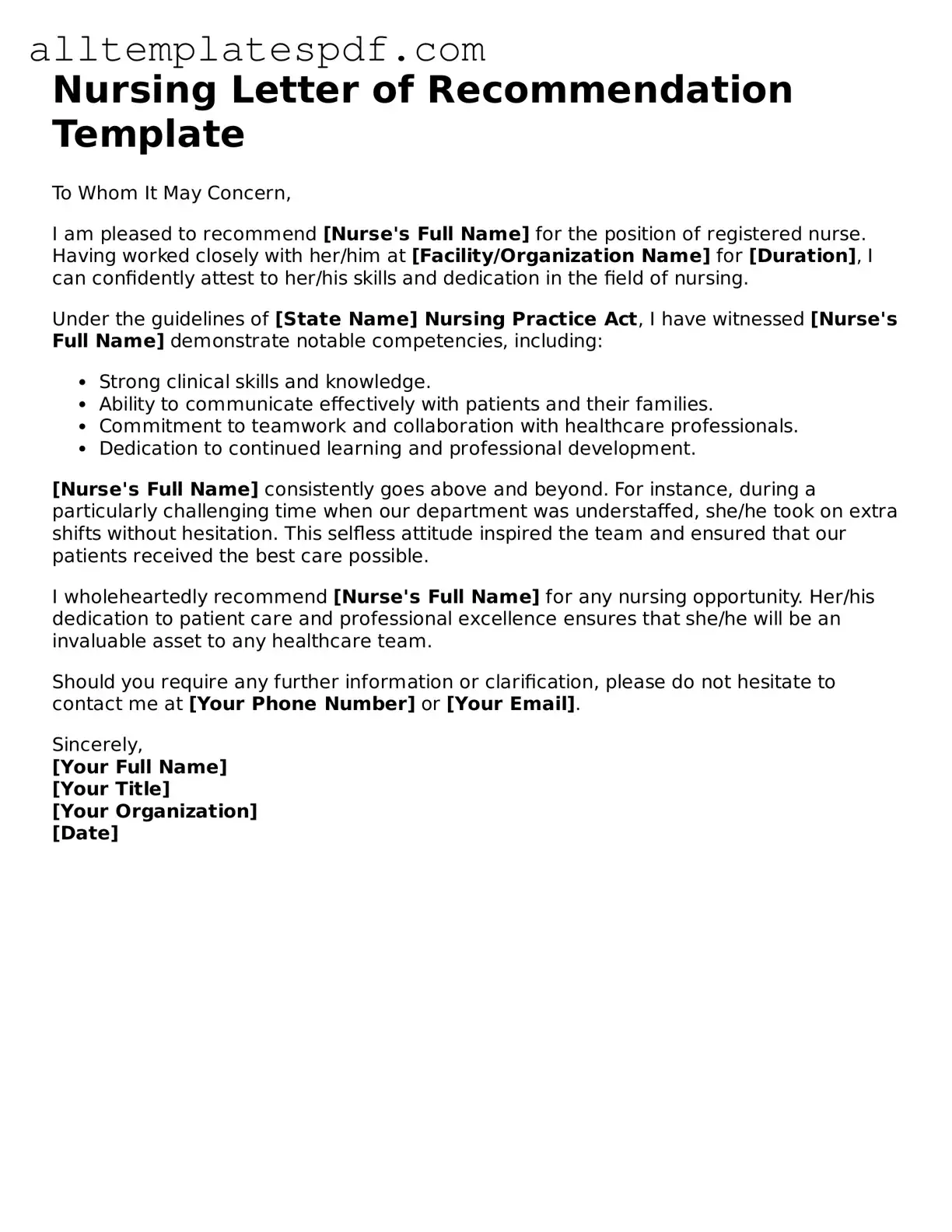Attorney-Approved Nursing Letter of Recommendation Template
The Nursing Letter of Recommendation form is a crucial document that supports a nursing candidate's application by highlighting their skills, experiences, and character. This form allows educators, employers, or colleagues to provide insights into the candidate’s qualifications, making it an essential part of the nursing application process. If you’re ready to enhance your application, fill out the form by clicking the button below.
Open Editor

Attorney-Approved Nursing Letter of Recommendation Template
Open Editor
Fast and easy form completion
Complete Nursing Letter of Recommendation digitally — fast and easy.
Open Editor
or
↓ Nursing Letter of Recommendation PDF Form
